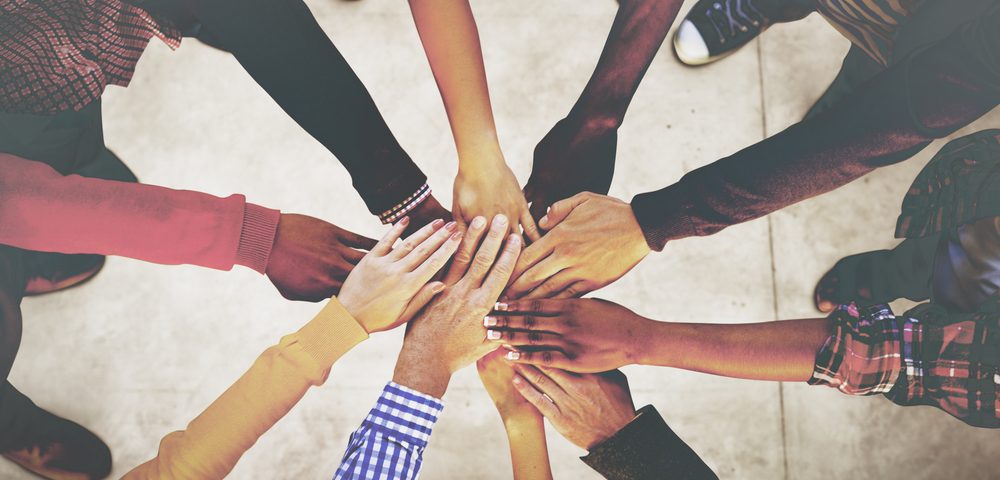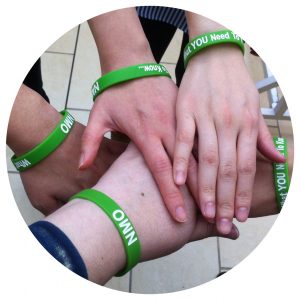Finding the Peer Support Team That Changed My Life
Written by |

Every month for the past 13 years, I’ve had a standing date booked in my calendar. The third Saturday of each month is blocked off for three hours of self-care in the form of a support group meeting.
I’m the token neuromyelitis optica (NMO) patient in a group with seven other women who live with multiple sclerosis. We meet each month to talk about what’s going on in our lives. Over the years, we’ve become a tight-knit group, having shared our struggles with our diseases, along with daily life events like births, deaths, marriages, divorces, and widowhood.
At the first meeting I attended, I wasn’t sure what to expect because I’d never been involved with a support group before. I was nervous, but my need to not feel so alone and overwhelmed outweighed any reservations I had about sharing my personal thoughts and feelings with strangers.
The group had a moderator, who was mainly there to keep the meeting running smoothly and to ensure that everyone had an opportunity to share. She began by explaining the group’s agreements, which included being respectful of one another, and the right to privacy, meaning that anything discussed in the meeting would not be shared outside the group.
As we went around the circle introducing ourselves, sharing our stories, and describing what brought us to the group, I realized that we had a lot in common, so, I began to relax. That first meeting went so well that I kept returning, month after month, and before I knew it, more than a decade had passed.
One of the most valuable aspects of attending a support group has been when I’m struggling with something physically. The other group members always listen when I share what is happening, and they offer fresh perspectives about how I might handle the situation.
For example, when I was going through chemotherapy for immunosuppression, my oncologist didn’t give me any medication for nausea. As he put it, “It’s not like you see on TV.”
But it turned out that he couldn’t have been more wrong. After my first treatment, I spent three days on the bathroom floor, constantly vomiting. I was absolutely miserable.
Later, in tears, I shared this experience with my group. They suggested I call the oncologist’s office, explain what happened, and say, “This isn’t working for me, and we need to figure it out.” Their advice empowered me to advocate for myself, and it did the trick: I was given a prescription for a medication that stopped the nausea and the vomiting. It was a huge relief.
Another positive aspect of participating in a support group is the sense of belonging. It’s hugely comforting to be among people who “get it” without having to explain myself. I know their stories, and they know mine. We accept where each person is at physically and emotionally at any given time, and we’re not there to “fix” one another. A deep trust comes from having been together for so long. We are certain that no matter what happens, we’ve got each other’s backs.
I am so grateful to have a safe space where I can allow myself to be vulnerable. I can cry and rail at the universe without being judged. Sometimes I just need to feel heard, and by extension, have what I’m thinking or feeling validated or normalized. Someone is always right there to give me a hug and share words of comfort and encouragement.
The beauty of this is that sometimes I’m on the receiving end of grace, and sometimes I’m the one offering it. This connection, above all else, is what helps me cope and maintain optimal mental health while living with multiple health conditions and disability, and navigating a health system that can be incredibly frustrating and demoralizing.
During the pandemic, our meetings have moved online so that we can continue to support one another. The ability to maintain our connection has been a lifeline for all of us during this exceptionally difficult time.
Joining a support group is the best thing I’ve ever done for myself. When someone newly diagnosed with NMO comes to me with questions about living well with this disease, I tell them that the two most important things they can do are: Get educated about this disease and get connected; find people to talk to.
Both of these things have saved my life over and over again, and for that, I am grateful.
How you can get connected
Following are some of the organizations and resources I found helpful here in Canada. Feel free to recommend others or share your thoughts in the comments below.
- The MS Society of Canada: 1:1 Peer Support Program and 1:1 Peer Support Program (en Français)
- The Sumaira Foundation for NMO: Human Collective Project and NMO Support Group Resource Page
- The Siegel Rare Neuroimmune Association (SRNA): Peer Connect Program
***
Note: Neuromyelitis News is strictly a news and information website about the disease. It does not provide medical advice, diagnosis, or treatment. This content is not intended to be a substitute for professional medical advice, diagnosis, or treatment. Always seek the advice of your physician or other qualified health provider with any questions you may have regarding a medical condition. Never disregard professional medical advice or delay in seeking it because of something you have read on this website. The opinions expressed in this column are not those of Neuromyelitis News or its parent company, Bionews, and are intended to spark discussion about issues pertaining to neuromyelitis optica spectrum disorder.







Leave a comment
Fill in the required fields to post. Your email address will not be published.